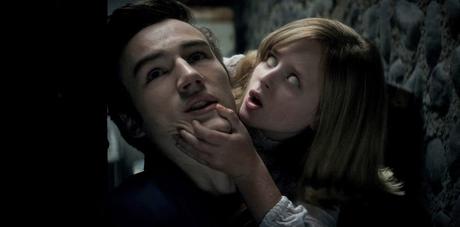 Starring: Elizabeth Reaser, Lulu Wilson, Annalise BassoWritten By: Mike FlanaganDirected By: Mike FlanaganRelease Date: October 21, 2016Rating: B+
Starring: Elizabeth Reaser, Lulu Wilson, Annalise BassoWritten By: Mike FlanaganDirected By: Mike FlanaganRelease Date: October 21, 2016Rating: B+Books Magazine
Movie Review: Ouija: Origin of Evil and A Bit on Mike Flannagan
Posted on the 26 January 2017 by Kandee @kandeecanread Starring: Elizabeth Reaser, Lulu Wilson, Annalise BassoWritten By: Mike FlanaganDirected By: Mike FlanaganRelease Date: October 21, 2016Rating: B+
Starring: Elizabeth Reaser, Lulu Wilson, Annalise BassoWritten By: Mike FlanaganDirected By: Mike FlanaganRelease Date: October 21, 2016Rating: B+
